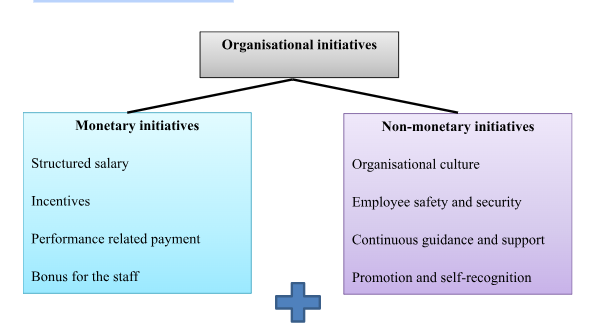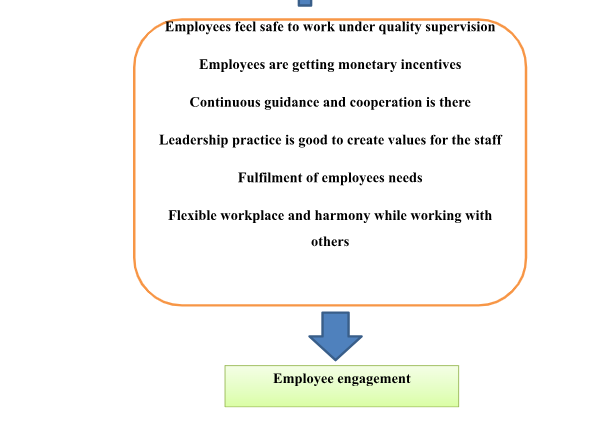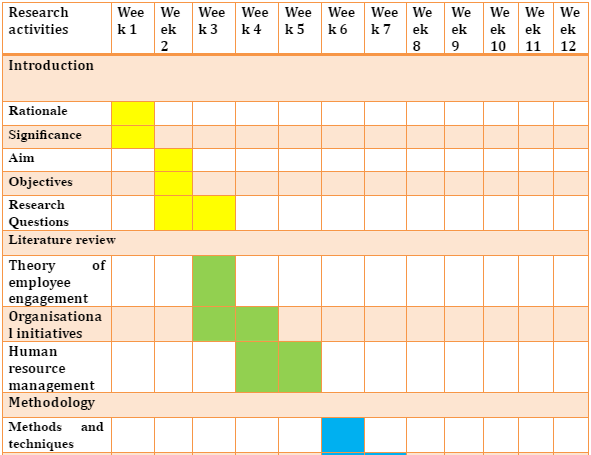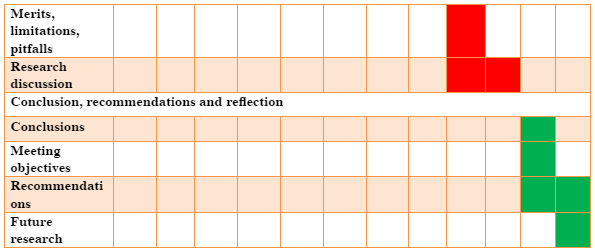Employee Engagement in Remote Work Environments
Introduction
The research is about analysing the effects of the organisational initiatives on employee engagement, where the researcher will be able to analyse the data and information for critical evaluation. The literature review is important to be developed efficiently in order to review the existing literatures, discuss the theories and models for gaining in depth knowledge and understanding on the research topic. For the most comprehensive assistance, considering business dissertation help, The research methodology is also effective to choose the best method of conducting the study in a systematic process.
Background of the study
In the recent pandemic era due to COVID 19, the individual are working remotely and most of the employees face difficulties to handle the working activities from their home. The organisations are also facing issues to engage with the staff due to remote working practice. Moreover, the employees are from diverse cultural and demographic background, for which it becomes also difficult to develop strong relationship with them (Kianto, Sáenz and Aramburu, 2017). It is important for the organisations to manage the human resource, as the employees are the main stakeholders of the company to contribute positively in achieving the corporate goals. Hence, it is the responsibility of the firms to engage each staff member in the workplace and develop strong team for working cooperatively to meet the strategic objectives (Albrecht, Breidahl and Marty, 2018). It is hereby important
 to develop good strategic initiatives at the organisations in order to improve employee’s engagement and it further helps the corporate leaders and managers to create values for the workers and keep them satisfied in the workplace. This research study provides a scope to compare the organisational initiatives in the UK and Australia for engaging the workers.
to develop good strategic initiatives at the organisations in order to improve employee’s engagement and it further helps the corporate leaders and managers to create values for the workers and keep them satisfied in the workplace. This research study provides a scope to compare the organisational initiatives in the UK and Australia for engaging the workers.
Research aims and objectives
Looking for further insights on Evaluation? Click here.
The aim of the research is to analyse the impacts of the organisational initiatives on employee engagement in the recent pandemic situation. Through this study, it is possible to evaluate different employee management system, of the two countries, UK and Australia, for critical evaluation of the initiatives taken place to engage the staff members in the workplace.
The research objectives are such as,
To explore the organisational initiatives for the employee management
To evaluate the impacts of the organisational initiatives on employee engagement
To compare the employee engagement initiatives in the UK and Australia
To recommend some suitable suggestions for restructuring the organisational initiatives to engage the employees in the workplace
Literature review
Employee engagement
Employee engagement is the human resource management process that describes the level of enthusiasm and dedication a worker feels toward their job. It is the responsibility of the corporate leaders and managers to engage each staff with the organisation to build strong corporate relationship by ensuring mutual trust, understanding and respect for each other. Under effective engagement, the workers are more likely to invest in the work that they do which leads to a higher quality of work produced (Osborne and Hammoud, 2017). The organisational creativity and innovation can also be enhanced through continuous employee’s engagement, where the workers feel motivated to show their creativity and improve business innovation for achieving the corporate aim collaboratively.
Organisational initiatives to engage the employees
The corporate firms in the recent era of globalisation focus on several initiatives in order to engage with the employees, as the employees are important to contribute positively in achieving the organisational success. The monetary incentives are there to create values for the staff, where the employees can get higher payments for fulfilling their personal needs. There is structured salary as well as bonus, performance related payment, as per the performance of each staff. This further motivates them to engage with the organisational activities and contribute efficiently to meet the strategic aim (Sun and Bunchapattanasakda, 2019). Additionally, the non-monetary incentives are also there in order to engage with the workers. The corporate leaders develop training and development programs for supporting the personal and professional career oath, by skill enhancement programs. This motivates the staff to work hard and gain in depth knowledge for maximising their capability to achieve higher. Moreover, the organisational managers try to create good working culture for maintaining corporate governance (Wilkinson and Dundon, 2021). There is good organisational structure, maintenance of seniority, harmony and freedom to work at the workplace which engages the staff with the activities of the firm. The managers also try to provide flexible working environment and enhance good team work by ensuring partnership working practice and internal communication (Kim et al., 2019). The workers feel safe to work under the quality supervision and they are continuous supported with the organisational information and data for maximising their performance.
Theoretical framework


Research methodology
The research methodologies are effective for the researchers to follow suitable steps in order to gather data and information for critical analysis of the research topic.
Research philosophy
Interpretivism, realism and positivism are the three research philosophies, in order to conduct in depth study. In this particular research, the researcher will choose the positivism philosophy, where Positivism philosophy indicates the analysing of the data and collected information related to the research topic by effective inclusion of the human being. The researchers mainly focus on the individuals review, company activities and real life for analysing the research topic. In this particular study, the researcher will be able to include all the necessary information and case studi8es for analysing the impacts of the organisational initiatives on employee engagement.
Continue your exploration of The Rise of Remote Work Environments with our related content.
Research approach
Among the deductive and inductive research approach, the researcher will select deductive research approach for progressing in the study in a systematic way. Under the deductive approach, the theories and concepts related to the research are gathered and after that the researcher will be able to create observation and gather the authentic data and information (Zangirolami-Raimundo, Echeimberg and Leone, 2018). The gathered data and information will be analysed further in order to draw final conclusion and meet the research objectives. Through this approach, the researcher will be able to explore the organisational initiatives and gather vast range of data and organisational information to compare and contrast the organisational process in the UK and Australia for employee engagement.
Data collection method
Primary and secondary are the two types of data collection method, and for progressing in the research, the researcher will select secondary data collection method, in order to analyse the above mentioned research topic. The secondary data are gathered by reviewing the books, journals, published articles, case studies and organisational annual report. These are effective for the researchers to improve own understanding on the research topic as well as progress in the study efficiently.
Data analysis technique
Quantitative and qualitative, both the analytical tools are advantageous for conducting the in-depth analysis and evaluation (Zangirolami-Raimundo, Echeimberg and Leone, 2018). The researcher will select the qualitative data analysis method, in order to gather vast range of information on organisational initiatives and employee engagement and develop critical evaluation. The qualitative analysis in this regard is helpful where the researchers will choose the thematic analysis for developing different themes and comparing the countries UK and Australia to understand the effects of the organisational initiatives on employee engagement.
Ethical considerations

Data Protection Act 1998 will be applied in order to maintain data safety and security as well as the authenticity and validity of the information are also managed well (Mohajan, 2018). The researchers utilise authentic citation for representing the data and information from the original studies, annual report and journals. Apart from that, the data and information will be represented in a systematic way without any data manipulation, so that comparing the countries UK and Australia will be developed further.
Gantt chart



Reference List
- Albrecht, S., Breidahl, E. and Marty, A., 2018. Organizational resources, organizational engagement climate, and employee engagement. Career Development International.
- Kianto, A., Sáenz, J. and Aramburu, N., 2017. Knowledge-based human resource management practices, intellectual capital and innovation. Journal of Business Research, 81, pp.11-20.
- Kim, Y.J., Kim, W.G., Choi, H.M. and Phetvaroon, K., 2019. The effect of green human resource management on hotel employees’ eco-friendly behavior and environmental performance. International Journal of Hospitality Management, 76, pp.83-93.
- Mohajan, H.K., 2018. Qualitative research methodology in social sciences and related subjects. Journal of Economic Development, Environment and People, 7(1), pp.23-48.
- Osborne, S. and Hammoud, M.S., 2017. Effective employee engagement in the workplace. International Journal of Applied Management and Technology, 16(1), p.4.
- Sun, L. and Bunchapattanasakda, C., 2019. Employee engagement: A literature review. International Journal of Human Resource Studies, 9(1), pp.63-80.
- Wilkinson, A. and Dundon, T., 2021. Contemporary human resource management: text and cases. London: SAGE.
- Zangirolami-Raimundo, J., Echeimberg, J.D.O. and Leone, C., 2018. Research methodology topics: Cross-sectional studies. Journal of Human Growth and Development, 28(3), pp.356-360.
Continue your exploration of Employee Engagement following the pandemic with our related content.
- 24/7 Customer Support
- 100% Customer Satisfaction
- No Privacy Violation
- Quick Services
- Subject Experts



